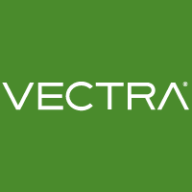

Vectra AI and Check Point IPS compete in the cybersecurity category. Vectra AI seems to have the upper hand with its advanced AI-driven threat detection and efficient alert management.
Features: Vectra AI employs AI and machine learning for advanced threat detection, reducing alert fatigue by grouping numerous alerts into a single incident. Its capability to integrate seamlessly into existing security frameworks adds value. Check Point IPS provides robust attack signature database coverage, delivering automatic updates to combat evolving threats, integration with infrastructure for virtual patching, and offers extensive threat prevention.
Room for Improvement: Vectra AI users suggest improved integration, detailed syslogs, and enhanced host visibility for better alert triage. They request a reduction in false positives and more comprehensive reporting options. Check Point IPS needs reduced complexity in configuration, better performance impact, and more affordable licensing options. Users also desire enhanced support and more responsive updates to rapidly address new threats.
Ease of Deployment and Customer Service: Vectra AI is praised for responsive customer support aiding in deployment and troubleshooting, providing consistent engagement throughout the implementation. Check Point IPS offers dependable support with an emphasis on security expertise, assisting in both deployment and management. Users suggest that a deeper understanding of the environment is required during setup and note that support response times could be improved.
Pricing and ROI: Both Vectra AI and Check Point IPS represent significant investments with complex licensing models. Vectra AI is viewed as expensive but justified due to its advanced threat detection features and efficiency. It delivers ROI through enhanced security efficiency and quicker response times. Check Point IPS is also seen as costly yet competitive when bundled with other solutions, with its value tied to comprehensive threat prevention tools that help manage risks effectively.
We have seen a return on investment with Check Point IPS because we have not seen any security events, malicious activities, or any device compromised, so we are secure now, and money has been saved.
I have seen a return on investment more in the risk saved since it catches a lot of stuff security-wise that is good to catch.
I have seen a return on investment since using Check Point IPS, as evidenced by fewer incidents.
Our technical teams have personal relationships with our account executives and direct support people.
Customer support for Check Point IPS is satisfactory.
The customer support for Check Point IPS is very good.
The support is quite reliable depending on the service engineer assigned.
When I create tickets, the response is fast, and issues are solved promptly.
We have moved to a hyper-scale master environment, allowing us to scale by adding additional gateways to the clusters.
The scalability of Check Point IPS is on point.
The scalability of Check Point IPS is great because when I deploy gateways in the cloud, I create a cluster, which offers a very scalable option.
Check Point IPS provides a very stable and reliable environment.
Check Point IPS is very stable.
Automated attack path correlation in SmartEvent to improve situational awareness.
At least 60% of all the alarms generated by the IPS are false positives or something that's not important to look at, and this generates a significant workload for my team.
Visual analytics and automated attack path correlation in SmartEvent to enhance situational awareness and attack identification.
ExtraHop's ability to decrypt encrypted data is a feature that Vectra AI lacks.
You need to have a Linux server, and from the Linux server, you must perform AI tasks, and there is a lot to be handled in the back end.
Neither Vectra nor Darktrace have a function like a status health check on my log sources and traffic sources.
Comparisons with Fortinet show that Check Point IPS is relatively more expensive, but we found it cheaper to retain it rather than switch.
My experience with pricing, setup cost, and licensing for Check Point IPS is good; it's baked into the firewall licensing, so that's very good.
My experience with pricing, setup cost, and licensing for Check Point IPS has been satisfactory.
Vectra is cheaper in terms of pricing and features compared to Darktrace.
It is very acceptable when you compare it with Darktrace, for example.
The integration with Check Point ThreatCloud ensures the IPS engine is updated with the latest attack signatures.
The solution employs behavioral heuristic analysis to block zero-day attacks using AI-powered engines.
Whenever any zero-day attack is detected, it downloads that signature into the firewall and prevents that threat.
There are extensive out-of-box detection capabilities.
The main feature of Vectra AI that I find valuable is its focus on the user interface and its approximately two hundred algorithms based on artificial intelligence and machine learning.
| Product | Market Share (%) |
|---|---|
| Check Point IPS | 3.8% |
| Vectra AI | 8.0% |
| Other | 88.2% |


| Company Size | Count |
|---|---|
| Small Business | 41 |
| Midsize Enterprise | 21 |
| Large Enterprise | 23 |
| Company Size | Count |
|---|---|
| Small Business | 9 |
| Midsize Enterprise | 10 |
| Large Enterprise | 27 |
Check Point IPS is an intrusion prevention system that aims to detect and prevent attempts to exploit weaknesses in vulnerable systems or applications. The solution provides complete, integrated, next-generation firewall intrusion prevention capabilities at multi-gigabit speeds with a low false positive rate and high security. It helps organizations secure their enterprise network, and protect servers and critical data against known and unknown automated malware, blended threats, and other threats.
Check Point IPS Features
Check Point IPS has many valuable key features. Some of the most useful ones include:
Check Point IPS Benefits
There are many benefits to implementing Check Point IPS. Some of the biggest advantages the solution offers include:
Reviews from Real Users
Check Point IPS is a solution that stands out when compared to many of its competitors. Some of its major advantages are that it has granularity capabilities for rule creation, quick updates of signatures, and a helpful mechanism that allows users to turn IPS signatures to a different mode automatically.
A System and Network Administrator at Auriga mentions, “The Check Point IPS module allows me granularity in creating rules. I can specify which definition to apply and to which scope or network.” The reviewer also adds, “I can create multiple profiles, which is helpful.”
“The quick updates of the signatures when a new threat is identified are great. For instance, when Microsoft releases patches, we usually see new signatures for those issues that have to be patched in a day. This gives us time to test/deploy the patches while already being protected from the threats. Also, it's very good with reporting. I can generate reports for management automatically based on the threats of the last day/week/whatever is needed,” says a Systems en networks engineer at CB.
Another PeerSpot user, a Network Engineer at VSP Vision Care, writes, “The mechanism where you can let the system automatically turn the IPS signature to a different mode (prevent / monitor / inactive) is a nice feature that allows us to easily adjust the balance between security protection and the risk of business impact.”
Vectra AI enhances security operations by pinpointing attack locations, correlating alerts, and providing in-depth visibility across attack lifecycles, ultimately prioritizing threats and improving incident responses.
Vectra AI integrates AI and machine learning to detect anomalies early and supports proactive threat response. Its features like risk scoring, alert correlation, and streamlined SOC efficiency are supplemented by integration with tools like Office 365. Users highlight integration, reporting, and customization challenges, alongside limitations in syslog data and false positive management. They seek enhancements in visualization, UI, TCP replay, endpoint visibility, and tool orchestration, with requests for improved documentation, licensing, and cloud processing innovation.
What are the key features of Vectra AI?In industries like finance, healthcare, and critical infrastructure, Vectra AI is crucial for threat detection and network monitoring. Entities use it for identifying anomalous behaviors and enhancing cybersecurity by responding to network activities and analyzing traffic for potential breaches. It operates on-premises and in hybrid cloud settings, enabling threat detection without endpoint agents and supporting compliance and policy enforcement.
We monitor all Intrusion Detection and Prevention Software (IDPS) reviews to prevent fraudulent reviews and keep review quality high. We do not post reviews by company employees or direct competitors. We validate each review for authenticity via cross-reference with LinkedIn, and personal follow-up with the reviewer when necessary.